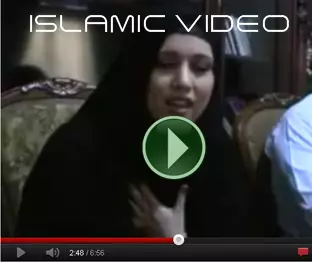International Islamic News Agency
With the violence continuing in Syria, sectarian tension ever present in Iraq, Afghanistan still struggling to establish security and Somalia trying to have some sort of normalcy, the Organization of Islamic Cooperation (OIC) certainly has a lot on its plate to handle.
As if that’s not enough, there are also issues of economic hardships, natural disasters and internal strife afflicting some OIC member states from Africa toAsia. In an interview with Arab News daily, OIC Secretary-General Ekmeleddin Ihsanoglu touched on the recent developments in the Arab world and spotlights some of the other issues, such as Muslim refugees, Islamophobia, human rights and Muslim minorities, which people might not be aware of as being also on the agenda of concern to the OIC.
The OIC has just organized with the United Nations High Commissioner for Refugees the first international conference exclusively on refugees in the Muslim world. What is the significance of this conference and what are the key decisions that came out of it?
The International Ministerial Conference on Refugees in the Muslim World held in Ashgabat, Turkmenistan(May 11-12), was indeed a significant step in the course of the OIC endeavors in the humanitarian arena. It was an issue-specific conference with a sharp focus on one of the most important humanitarian files, the plight of refugees hosted by OIC member sates, who constitute more than 50 percent of the total number of refugees in the world. The conference was held under the mandate of the United Nations High Commissioner for Refugees (UNHCR) and came as a result of the political will and resolve of the OIC member states to address this issue by highlighting its significance and underscoring the need for lasting solutions that will help in peace, stability and development.
The partnership between the OIC and UNHCR was crucial in this process, and it has been effectively generating momentum, which enriched and supported the process that led to the convening of the conference. In fact, the conference is not to be seen as a one-time event, but as part of an ongoing process to deal with the humanitarian concerns and actions related to refugees in the Muslim world. In this regard, the conference was also an opportunity to demonstrate the need for enhancing international burden-sharing and the need for providing more resources to the UNHCR by the international community to meet its obligations toward these refugee situations.
The Ashgabat Declaration, issued by the conference, is an important document that demonstrates the continued and enhanced OIC humanitarian activities in collaboration with the United Nations and other regional and international actors. We were explicit in stressing the role of the OIC in this humanitarian domain and called upon all to work toward sustained and durable solutions within a process of burden-sharing and coordination with the international community. The OIC secretariat will continue to follow up on actions on refugee matters as part of the activities of its humanitarian department and in line with OIC resolutions related to this important humanitarian issue.
Is there a concern that with the ongoing violence inSyriathere will be more refugees, thus increasing the burden on the neighboring countries that already host thousands of refugees? What is the OIC doing for the Syrian refugees and internally displaced people?
The OIC is indeed concerned with the plight of Syrian refugees in neighboring countries. In this regard, the OIC has been urging its member states and the international community to continue to provide support to the office of the United Nations High Commissioner for Refugees (UNHCR) to enable it in its endeavors to effectively assist Syrian refugees. At the same time, the OIC strongly urges for political solutions to the situation in Syriathat would stop the bloodshed and violence.
As long as the conflict continues withinSyria, there is the likelihood of more refugees crossing into neighboring countries. There are also possibilities of seeing more internally displaced persons withinSyria as a result of this conflict. That is why we call for a two-pronged approach. One is humanitarian, by mobilizing more international community resources to assist refugees and internally displaced persons; two is political, by finding political solutions to stop the conflict in the interest ofSyria and the overall region.
At the 9th Islamic Conference of Information Ministers held this month inGabonyou announced that the ministers agreed to launch a media campaign including an OIC satellite channel to present the real image of Islam. Could you tell us more about this?
The media are a very important element in countering Islamophobia and presenting the real Islam, because they inform the public, shape its opinion and influence its attitude. Therefore, the information ministers of the OIC member states at their last conference in Gabonin April agreed to coordinate their efforts in highlighting Islamic issues, confront anti-Islamic stereotypes, and support Islamic causes. The comprehensive media campaign aims to combat prejudice against Islam and Muslim communities, especially in the West, with a view to foster respect for cultural diversity and religious pluralism, while raising awareness about the positive contributions of Muslims to promote tolerance and understanding.
The plan has short, medium and long-term goals including seminars, workshops, publications and productions, and one of the proposals is launching a satellite channel. The proposal is in the study phase, in which a committee has been formed to study the different aspects of the channel, and it will hold its first meeting soon.
How do you see the outcome of the Arab revolutions so far, especially with Islamic-based parties coming out as the winners in the parliamentary elections, which some in the West are apprehensive about what that might mean for democracy and human rights?
It is no surprise that the West, or at least some Western policymakers and observers, perceive with concern the victory of “Islamist” political parties in elections held so far in some Arab Spring countries. Indeed, what they tend to describe as political Islam has been perceived for a long time, and even used, as a scarecrow. But let’s face it, political parties referencing Islam in many Muslim countries have managed to offer an alternative to long-serving authoritarian ruling regimes, which were close allies of Western countries and which have failed to implement the principles of good and democratic governance.
Now, I think we should wait and see whether Islam-inspired political parties are serious about living up to their discourse on good governance and socioeconomic development. We should keep in mind that these parties have been democratically elected by the people, and as such, they have the legitimacy to govern. They will be judged for their policies and actions as well as for their ability to reform the style of governance against which the people have risen. We should not prejudge these parties just because we have some preconceived, distorted notions or understandings of the compatibility of Islam with democracy and human rights. We should also be careful about accepting as absolute what these parties might claim to be Islamic-based views and decisions.
What actions does the OIC take to preserve human rights in the Islamic world?
The OIC’s commitment to human rights is absolute. This emanates from the fundamental principles of the Islamic faith that has, at its core, the respect for human dignity and human life. The concept of human rights, as we know today, has evolved over the centuries out of the need for protection of fundamental freedoms of human beings, such as the basic right to life, food and shelter. It encompasses the broader concept of political, social, cultural and economic rights.
Because of this, the OIC started the establishment of an Independent Permanent Human Rights Commission (IPHRC), based on the mandate of the Ten-Year Program of Action and the new OIC charter adopted inDakar in 2008 during the 11th summit. The statute of the commission was adopted during the 38th Council of Foreign Ministers held in Astana in June 2011 and entered into force following its adoption. What was envisaged to be achieved over a period of 10 years was accomplished in half the stipulated time period, which is quite an achievement. The 38th Council of Foreign Ministers also elected 18 independent experts composing the commission. The experts held their first session inJakarta in February 2012, where they worked on developing a framework to strengthen human rights in the OIC member states.
How does the OIC view the violence against small Muslim minority sects and non-Muslim minorities in Muslim countries, and what is it doing in this regard?
The OIC has constantly championed a culture of religious coexistence as a way of creating a world where the values of justice, cooperation and mutual respect prevail. The OIC has embraced the idea of a constructive and mutually enriching dialogue among and within religions as a counterweight to the doom and gloom prophecy of a purported clash of civilizations. I launched years ago an initiative in that sense and conveyed the idea to Western leaders and at international forums.
The OIC has strongly condemned violence and intolerance of other religious faiths and minorities as well as the destruction of places of worship, a practice that runs counter to the fundamental tenets of Islam. We condemned the burning of churches in Java, Indonesia, and more recently we firmly condemned the bombing attacks led by Boko Haram in Nigeria.
As for small Muslim groups and non-Muslim minorities in Muslim countries, the OIC has never ceased calling for the imperative of guaranteeing and protecting the rights of all Muslim sects and non-Muslim minorities in Islamic countries in a spirit of tolerance and acceptance. We have insistently emphasized the need to focus on the shared values that bring together the adherents of the various denominations of Islam on the one hand as well as non-Muslims and Muslims on the other, as a way of fostering intra- and interfaith understanding and tolerance while promoting peace, harmony and stability. In this sense, we have always denounced any positions or acts that incite against or target non-Muslims or small sects in Muslim-majority nations.
We are in contact with the officials in those member states that have witnessed violent acts against their non-Muslim populations, and we are trying to help steer the society away from tension and toward harmony.
In a similar vein, the International Islamic Fiqh Academy, which is an OIC subsidiary organ, endeavors to boost collective ijtihad (the process of deriving rules on contemporary issues from the Qur’an and Sunnah) in the field of Islamic jurisprudence as a shield against the proliferation of reckless and irresponsible individual interpretations that may prove detrimental to the image of Islam and Muslims.
What are your efforts to combat Islamophobia and extremism?
Islamophobia is surely one of serious concern for the Muslim Ummah, and the OIC has been seized with the issue since the day I took over the organization. Islamophobia came as a priority on the agenda of the 3rd Extraordinary OIC Summit held in Makkah in 2005, which mandated the General Secretariat to establish an observatory in the Ten-Year Program of Action to monitor the issue and take necessary steps to counter it. The observatory was created to monitor and sensitize the world about Islamophobic incidents and, at the same time, create an awareness campaign against Islamophobia. The observatory already presented four annual reports, and it has monthly reports that are available on the OIC’s official website. The main issues are related to desecration of cemeteries, mosques, Islamic cultural centers, the stigmatization of Muslims searching for work, in the work itself, and in the public sphere. In its latest report released in June 2011, the observatory dwelt extensively on the rise of the extreme right in parts of Europe and the United Statesand its consequences for the integration of Muslims therein. Incidentally, the recent report by Amnesty International released last month confirms the findings of the observatory on the rise of Islamophobia in Europe.
As part of the OIC’s efforts to counter Islamophobia, we have taken initiatives to organize and actively participate in various conferences that have taken place in member states and other countries. Our objective was and is aimed at removing the misgivings and distortion of image as well as highlighting the positive side of Islam and to initiate a dialogue among civilizations on the basis of historical reconciliation. I would mention, for instance, the successful OIC-Georgetown University Symposium on “Pluralism and Islam” held in Washington, D.C. in September 2007, an occasion for interacting with prominent think tanks and academic institutions in Washington and New York and for one-on-one meetings with heads of delegation of European and Muslim countries. Later on, the proceedings of the meeting were published in a form of booklet titled “Islamophobia and the Challenges of Pluralism in the 21st Century.” Also, the OIC together with the Alliance of Civilizations, the Council of Europe and the British Council organized an open roundtable on “Addressing Islamophobia: Building on unused opportunities for mutual respect and inclusion” on the sidelines of the Alliance of Civilizations’ third global forum held in Rio de Janeiro in May 2010. The event aimed at holding an informed debate on how to address Islamophobia from a result-oriented perspective. Based on available data on discrimination and prejudice toward Muslim communities in various countries, it discussed how to concert efforts in order to bring citizens of various backgrounds together to build trust and social cohesion. All the speakers were unanimous that Islamophobia was a global phenomenon and a threat to peace and security for people of all religious and cultural backgrounds, and that it had to be addressed collectively.
I would also mention that the unanimous adoption of the OIC-initiated Resolution 16/18 by the UN Human Rights Council in April 2011 and the UN General Assembly Resolution A/66/167 in November 2011 on combating intolerance based on religion and belief are a landmark beginning for the future on building a climate of trust between the West and the Muslim world. Resolution 16/18 and the process of implementing it, known as the “Istanbul Process,” aims to develop a culture of peaceful cohabitation among people of diverse cultural and religious backgrounds without curtailing the freedom of expression, except when it comes to “incitement to eminent violence.”
SOURCE:SOMALIAND SUN














